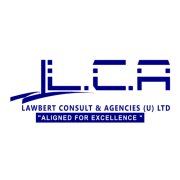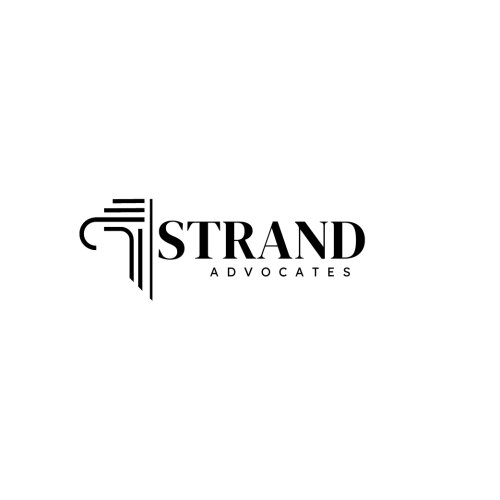Best Commercial Real Estate Lawyers in Uganda
Share your needs with us, get contacted by law firms.
Free. Takes 2 min.
Free Guide to Hiring a Real Estate Lawyer
Or refine your search by selecting a city:
List of the best lawyers in Uganda
About Commercial Real Estate Law in Uganda
Commercial Real Estate in Uganda encompasses the development, leasing, management, and sale of properties intended for business use, such as office buildings, shopping malls, industrial parks, and hotels. Given Uganda's rapidly growing economy and expanding urban centers, the commercial real estate sector is increasingly becoming a critical aspect of economic development. There are various laws and regulations governing land acquisition, property taxation, leasing agreements, and development protocols that stakeholders in this sector must adhere to. Understanding these legal frameworks is essential to operate successfully and avoid potential legal disputes.
Why You May Need a Lawyer
Engaging a lawyer specializing in commercial real estate is crucial in several scenarios, including:
- Land acquisition and Due Diligence: Lawyers assist in verifying property titles, checking for encumbrances, and ensuring the legality of land transfers.
- Lease Negotiations: Legal expertise is needed to draft and negotiate lease agreements to safeguard the interests of landlords and tenants.
- Compliance with Zoning Laws: Lawyers help ensure that developments comply with local zoning regulations and land use laws.
- Resolving Disputes: Engaging legal counsel is beneficial in resolving disputes over property boundaries, contract breaches, or tenant-landlord disagreements.
- Property Development: Lawyers can navigate the legal requirements for permits, licenses, and environmental impact assessments necessary for development projects.
Local Laws Overview
Several key laws govern commercial real estate in Uganda:
- The Land Act, 1998: Governs land ownership and user rights, detailing provisions for leasing and transferring land.
- The Registration of Titles Act: Manages the registration and titling of land, ensuring secure property transactions.
- The Physical Planning Act, 2010: Provides a framework for land use planning and development control across urban and rural areas.
- The Land Acquisition Act, 1965: Details procedures for government acquisition of land for public purposes.
- The National Environment Management Act, 1995: Mandates environmental impact assessments for property developments.
Frequently Asked Questions
What is the process for acquiring land for commercial use in Uganda?
The process involves conducting due diligence on the land title, negotiating purchase terms, drafting a sale agreement, transferring ownership formally, and registering the title.
Are there restrictions on foreign ownership of commercial real estate in Uganda?
Yes, foreigners can lease land for up to 99 years, but direct land ownership is restricted. Transactions are facilitated through leasehold agreements.
What taxes apply to commercial properties in Uganda?
Property owners are required to pay property tax, rental income tax, and other applicable local taxes. Capital gains tax applies to property transactions.
How do I resolve a boundary dispute with a neighbor?
Boundary disputes can typically be resolved through mediation, but legal proceedings might be necessary if an agreement cannot be reached. It's advisable to consult a lawyer.
What should I know about commercial leasing agreements?
Commercial leases should clearly define terms such as rent amount, lease duration, renewal options, maintenance responsibilities, and termination conditions. Legal review is recommended.
What permits are required for commercial property development?
Developers must obtain building permits, zoning approvals, and conduct necessary environmental impact assessments, among other regulatory requirements.
What is the role of a real estate agent in commercial transactions?
Real estate agents assist in finding suitable properties, conducting market analysis, and negotiating terms, though legal advice should still be sought for contractual matters.
Can commercial properties be used for residential purposes?
Using commercial properties for residential purposes typically requires zoning approval and may involve changing the property's designated land use category.
How can I ensure compliance with environmental regulations?
Engaging environmental consultants and legal experts can help in conducting compliance audits and preparing necessary documentation for environmental assessments.
What is the procedure for evicting a commercial tenant?
The eviction process involves serving notice as per the lease terms, obtaining a court order if the tenant refuses to vacate, and following legal procedures meticulously.
Additional Resources
Consider consulting the following resources for more information and assistance:
- The Uganda Land Commission: Provides guidance on land ownership and transactions.
- The Ministry of Lands, Housing and Urban Development: Oversees land policies and development planning.
- Uganda Revenue Authority: For insights into property-related taxes and obligations.
- Law Society of Uganda: Can provide referrals to qualified real estate lawyers.
Next Steps
If you require legal assistance in commercial real estate, consider the following steps:
- Consult with Professionals: Approach licensed real estate lawyers for preliminary advice on your specific situation.
- Gather Documentation: Prepare all relevant documents, such as titles, contracts, and tax receipts, to aid in your legal consultation.
- Consider Legal Retainer: For ongoing or complex cases, establish a retainer agreement with a legal professional to ensure continuous support.
- Stay Informed: Keep abreast of changes in laws and regulations affecting commercial real estate through newsletters, seminars, and industry publications.
Lawzana helps you find the best lawyers and law firms in Uganda through a curated and pre-screened list of qualified legal professionals. Our platform offers rankings and detailed profiles of attorneys and law firms, allowing you to compare based on practice areas, including Commercial Real Estate, experience, and client feedback.
Each profile includes a description of the firm's areas of practice, client reviews, team members and partners, year of establishment, spoken languages, office locations, contact information, social media presence, and any published articles or resources. Most firms on our platform speak English and are experienced in both local and international legal matters.
Get a quote from top-rated law firms in Uganda — quickly, securely, and without unnecessary hassle.
Disclaimer:
The information provided on this page is for general informational purposes only and does not constitute legal advice. While we strive to ensure the accuracy and relevance of the content, legal information may change over time, and interpretations of the law can vary. You should always consult with a qualified legal professional for advice specific to your situation.
We disclaim all liability for actions taken or not taken based on the content of this page. If you believe any information is incorrect or outdated, please contact us, and we will review and update it where appropriate.
Browse commercial real estate law firms by city in Uganda
Refine your search by selecting a city.
















